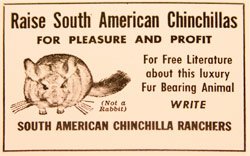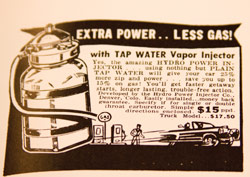Since 1920, the business community in central Illinois has steadfastly supported ethics, integrity and self-regulation in the marketplace by supporting and maintaining the Better Business Bureau of Central Illinois. This year celebrates the Bureau’s 90th year of service.
Combating Outrageous Claims
What started out as a group of Minnesota business leaders combating a flood of misleading advertising quickly developed into vigilance committees supporting self-regulation, not only in advertising, but in all business practices. “It was a time when advertising had been corrupted to the point that Americans no longer believed any advertisement they saw,” said Bonnie Bakin, president of the Central Illinois BBB. “There was no regulation on advertising, so you can imagine the outrageous claims that were made.”
Soon, these committees became the Better Business Bureau. In 1920, central Illinois joined the cause “to maintain fair competition and dependability in confidence in all advertising, of whatever nature, disseminated in Peoria, Illinois, and in the merchandise or services offered.” The BBB got to work right away on advertisements of snake oil and other potions to cure everything from rickets to insomnia.
It wasn’t long before the BBB received complaints and inquiries from consumers and business wanting to know what information the organization had. This was the birth of the BBB Reliability Report. The earliest complaints in the Roaring ‘20s involved bogus investment schemes such as “bucket shops”—fake brokerage houses that took money from investors and never executed trades.
By the 1920s, the fight for truth and honesty had moved to a new battleground. The stock market was soaring, attracting hordes of investors and an extraordinary number of unscrupulous people who saw its popularity as a golden opportunity to pursue ill-gotten gains. The BBB started a “Before You Invest, Investigate” service, available to small investors without charge, that distributed facts through savings institutions, investment bankers, commercial banks and trust companies, life insurance companies, and other institutions.
After the stock market crash in 1929, con men left the financial scams behind and moved on to schemes promoting muskrat breeding, rabbit farms and cemetery lots.
 In the 1930s, the BBB’s effectiveness became evident when 53 lawsuits were filed against 24 BBBs by unscrupulous characters, with claims totaling $15 million. Not one penny of those claims was ever paid. The Better Business Bureau had become one of the most respected guardians of the public trust.
In the 1930s, the BBB’s effectiveness became evident when 53 lawsuits were filed against 24 BBBs by unscrupulous characters, with claims totaling $15 million. Not one penny of those claims was ever paid. The Better Business Bureau had become one of the most respected guardians of the public trust.
Scams ranging from the farfetched to the outlandish appeared in the 1940s. The BBB worked hard to discredit claims of “official black out mail” and specialty-treated sand to extinguish bombs. “During the war, people were encouraged to buy bonds as a way to fund the war,” said Bakin. “After the war, the government repaid those bonds with interest, so many people had substantial access to large sums of money after the war and were prime targets for con men.” By the end of the war, the BBB was enlisted to aid the government in protecting consumers’ war bonds and savings from swindlers.
Through the 1950s, whether it was raising chinchillas for fun and profit or injecting water into carburetors to increase power and save gas, the BBB never lacked opportunities to expose eccentric schemes. President Harry S. Truman offered the Better Business Bureaus a congratulatory pat on the back, saying, “Your bureaus have not relied on propaganda extolling the virtues of business. They have gone to work to clean out the shady areas in the commercial world.”
The Rise of Consumerism and the Web
During the 1960s and ‘70s, the BBB saw the emergence of the consumerism movement. Many nonprofit consumer rights and trade groups emerged, and civility often took a back seat to splashy lawsuits as a way to resolve disputes. The BBB was actively helping consumers with problems such as the non-delivery of merchandise, lengthy delays in receiving “guaranteed refunds” and failure to service merchandise covered by warranty.
Meanwhile, the BBB continued its longstanding efforts against unscrupulous activities. The nation began to see puzzle contest promotions and a resurgence of land speculation on a scale unmatched since the 1920s. On-the-spot investigation found many land ads touting to be paradise to be grossly exaggerated. Desert lots, underwater lots and inaccessible mountaintops led the BBBs to issue warnings and meet with industry officials to develop safeguards for the public.
 In the 1980s, the BBB created new programs with industry leaders and consumer groups to serve its ever-expanding mission, including the National Advertising Division, the Philanthropic Advisory Service (now the Wise Giving Alliance), and the automotive arbitration program called AutoLine.
In the 1980s, the BBB created new programs with industry leaders and consumer groups to serve its ever-expanding mission, including the National Advertising Division, the Philanthropic Advisory Service (now the Wise Giving Alliance), and the automotive arbitration program called AutoLine.
Just when the BBB thought it had seen it all, along came the World Wide Web in the 1990s. The Internet was a breath of fresh air for all of the old scams and schemes, and the BBB stayed busy warning consumers about multi-level marketing schemes and of course, Nigerian 419 scams.
As information and technology developed, so did the BBB. “The new millennium brought phishing, work at home, advanced fee loan, spyware and disaster relief scams,” noted Bakin. The BBB now has to deal with websites and services that do not have the experience, wisdom, ethics or commitment to our communities at heart. “The BBB and our businesses have to become savvy in the ways of social media, not only as a marketing tool, but as a defense mechanism,” said Bakin. “But our history shows we will prevail.” Through it all, the BBB remains America’s trusted resource for unbiased, factual information, on which consumers and businesses rely.
Today, the BBB continues to promote self-regulation, resolve marketplace disputes, investigate shifty solicitations and denounce misleading advertising. The BBB serving central Illinois has grown to serve 36 counties and uses the web to deliver educational information on an array of marketplace topics. “Ninety years of experience, expert advice and unbiased information has made the BBB the sage on marketplace issues, and that will never change,” said Bakin proudly. “The BBB has a lot more work ahead. I see the BBB increasing the use of technology to resolve disputes, track unscrupulous players, expand ethics and consumer education. I see the BBB model expanding to other countries and cultures. I see a truly global place where buyers and sellers meet with trust.”
The BBB has seen a tremendous surge in website inquiries since the financial markets collapsed. Every year, more than 65 million consumers rely on the organization’s Reliability and Wise Giving reports to help them find trustworthy businesses and charities across North America. The BBB continues to be an authority for consumers as they seek out information on companies with whom they choose to do business and charities they choose to support.
The BBB exists not only for consumers, but for businesses alike. It provides educational information, expert insight and advice that is free of charge and easily accessible. Every day, for 90 years, the BBB has worked to set the standard for marketplace trust. BBB accreditation is one fail-safe that consumers look for and can count on. The history of the Better Business Bureau is still being written, as each day it works to make the bond between consumers and businesses stronger, proving that principles such as integrity, reliability and honesty are what make the world work…and that’s Better Business.
For more information about the Better Business Bureau, visit
bbb.org or call (309) 208-8050. iBi


